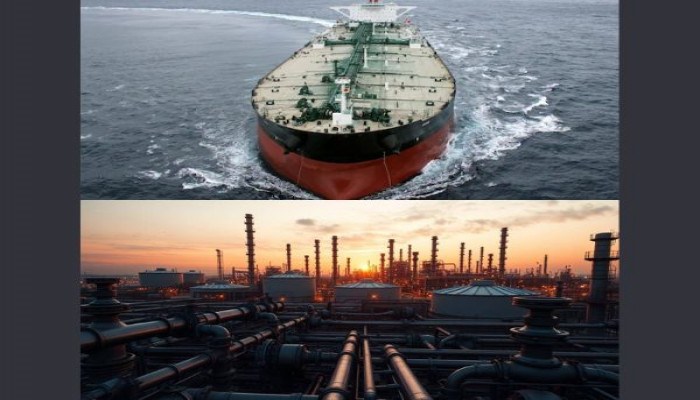US sanctions six Indian firms for petrochemical trade with Iran
- In Reports
- 07:00 PM, Jul 31, 2025
- Myind Staff
The US State Department on Wednesday imposed sanctions on more than a dozen foreign companies, including six Indian firms, for conducting business related to Iranian petrochemical products. These Indian firms were sanctioned under a 2018 Executive Order signed during President Donald Trump's first term, which allows the US government to freeze any assets that sanctioned entities hold in the United States.
This action is part of a wider push by the Trump administration to weaken Iran’s oil and petrochemical export revenues, which serve as a major source of funding for the Iranian government.
According to the US State Department, the six Indian companies carried out transactions amounting to $ 221 million by purchasing or importing petrochemical goods from Iran during 2024 and 2025. These firms include Kanchan Polymers, Alchemical Solutions, Ramniklal, Jupiter Dye Chem, Global Industrial and Persistent Petrochem Private Limited.
Two of these companies were also linked to businesses based in the United Arab Emirates, which were similarly sanctioned. Additionally, the US imposed sanctions on firms in Turkey, Indonesia and China.
Earlier this month, the US Treasury Department had placed sanctions on New Delhi-based firm Sai Saburi Consulting for allegedly helping Iran continue oil trade despite ongoing American restrictions. In February, four other Indian companies – Flux Maritime LLP, BSM Marine LLP, Austinship Management Pvt Ltd and Cosmos Lines Inc – faced sanctions from both the State Department and the Treasury.
These actions are part of Washington’s renewed efforts to cut off Iran’s oil revenues by targeting what US officials have described as Iran’s “shadow fleet” of oil carriers. The Treasury also imposed sanctions on a smuggling network operating through Iraq and Iran, which involved shipping firms registered in Singapore, Seychelles and the Marshall Islands that were transporting millions of barrels of Iranian oil.
Iranian news reports quoted Hassan Abbaszadeh, managing director of Iran’s National Petrochemical Company, stating that Iran’s petrochemical exports earned the country more than 13 billion dollars in 2024-25.
The Trump administration had launched a campaign of economic pressure to compel Iran to negotiate an agreement that would end its pursuit of nuclear weapons.
Under Executive Order 13846, issued by President Trump in 2018, the US can impose sanctions on any individual or entity that “knowingly provides significant financial, material, technological, or other support to, or goods or services” to anyone connected with Iran’s energy, shipping or shipbuilding sectors.
This move followed Trump’s decision to withdraw the United States from the 2015 Iran nuclear agreement. That deal had committed Iran to limiting aspects of its nuclear activities in return for relief from sanctions and economic benefits.
According to the US government, the sanctions allow American authorities to “block all property and interests in property which are in the United States, that hereafter come within the United States, or that are or hereafter come within the possession or control of any United States person of the sanctioned person, and provide that such property and interests in property may not be transferred, paid, exported, withdrawn, or otherwise dealt in”.
So far, five formal rounds of negotiations between US and Iranian officials have taken place, with the US urging Iran to abandon its nuclear weapons ambitions. A sixth round was expected, but it was disrupted after joint US and Israeli military strikes on Iran in June.







Comments